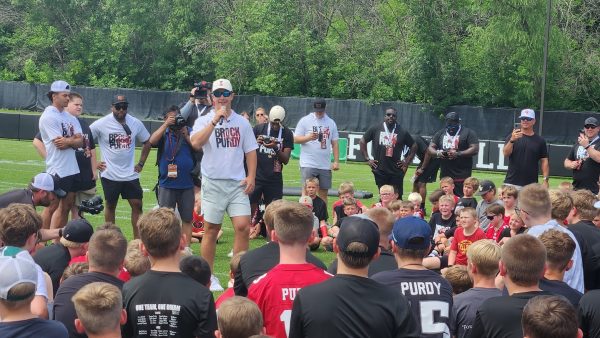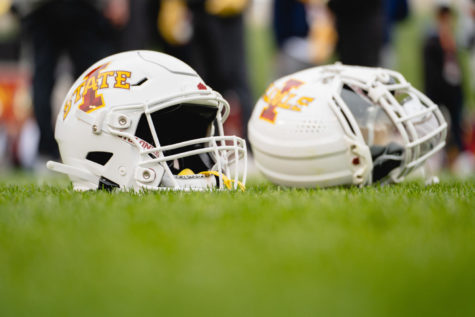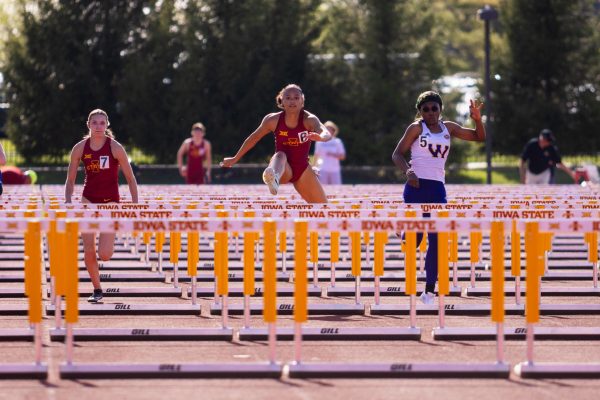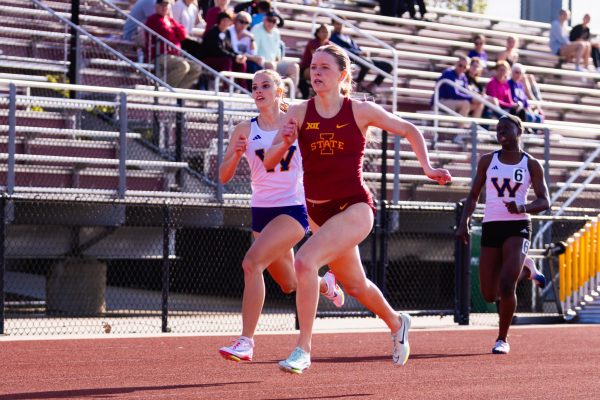Cyclone Stampede provides thrills for 49th straight year
October 2, 2011
The ISU Rodeo Club doesn’t compete with the same amount of students week in and week out as the rest of the Great Plains Region does, but that doesn’t stop it from hosting its own National Intercollegiate Rodeo Association-sponsored rodeo.
For the 49th straight year, the Cyclone Stampede took place at the ISU animal science farm in southwest Ames on Friday and Saturday. Only three ISU students competed over the weekend.
“We had a great turnout this year, we were able to sell a lot of tickets for the event and had a great turnout for all three rounds,” said Shelby Chapman, ISU Rodeo Club representative and Cyclone Stampede event marketing chair. [corrected from: Megan Waechter, Rodeo Club fundraising executive officer.] “Even with the football game on Saturday, we were able to draw a great crowd for the finals.”
The Cyclone Stampede is a three-round rodeo that consists of two preliminary rounds and a final championship round, which hosts the riders with the best scores from the previous rounds.
None of Iowa State’s students made it to the championship round, but the other Iowa school, Iowa Central Community College, made some noise in the Cyclone Stampede.
Last year was a big year for Iowa Central as it was able to send a rider to the season-ending College National Finals Rodeo, which is held every year in Casper, Wyo. That rider is Tim O’Connell, and his event is bareback bronc riding.
O’Connell’s route to a return trip to Casper took a bumpy ride over the weekend, as his first ride didn’t impress. As he climbed on top of his horse inside the chute, he grabbed the leather handle that he is allowed to hold onto with one hand during the round.
His coaches and other assorted helpers that were gathered around the chute asked if he was ready, and O’Connell nodded his head.
The gate to the chute swung open; O’Connell was expecting a rough ride with a powerful first buck. Instead, the horse turned its head and admired the crowd on the cloudless blue Saturday afternoon.
Around the chute, the coaches and other competitors yelled, trying to get the horse to move.
Instead of a powerful first buck, the horse shifted its feet just enough to start the eight second time limit. More yells rose, even from the stands, but the horse didn’t move.
Four seconds after shifting its feet, the horse finally bucked out of the chute. O’Connell held on, for the remaining time and recorded the unimpressive score of 45 out of a possible 100.
O’Connell was granted a re-ride because his horse was deemed to be unresponsive. On his second ride, the new horse was less shy and bucked O’Connell around, but O’Connell held on to record a first-round best of 73 to take the lead.
“I had a two solid runs, there were a few times when I thought I was going to get bucked, but I was able to stay on top of it,” O’Connell said after the rodeo. “I am really just happy I was able to get a re-ride after my first horse.”
In the championship round, O’Connell once again held on and recorded another solid score, which was enough to give him the first win of the 2011-12 rodeo season.
“Tim had a very good weekend, winning bareback bronc,” said Terry Coleman, assistant coach for Iowa Central. “He has his goals to make it back to Casper, and this weekend shows he is well on his way to getting there.”
One of the unique parts of college rodeo is the team roping event. What makes this event unique is that many of the teams are hybrids of two different teams.
Iowa Central was a part of the championship rides for the event of team roping as well. Will George, who was partnered with South Dakota State’s Troy Donnelly, recorded the fastest average time for the rodeo to win the buckle.
“We had another strong week,” Coleman said. “With 12 students making it to the short go, and our kids were able to walk away with some [championship] buckles, which brings confidence.”
















